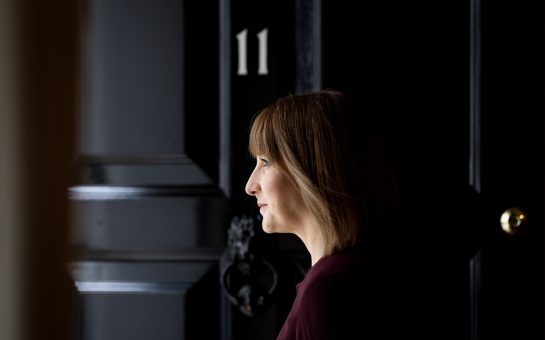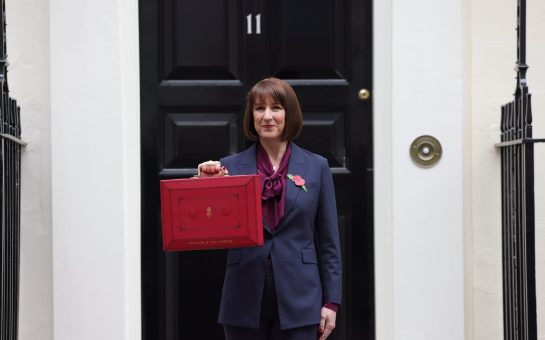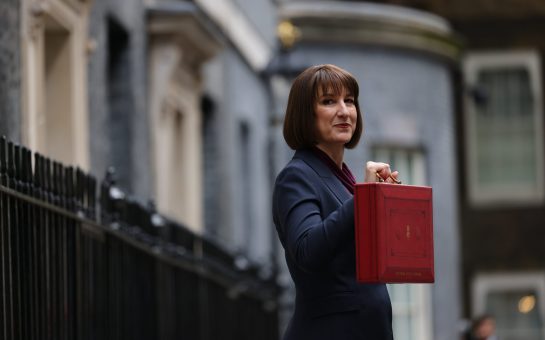Chancellor Rishi Sunak has announced the government Spring Budget today, announcing over £600b of spending and pledging to give the NHS “what it needs” as COVID-19 spreads across the UK.
The government have described their plan as the “most comprehensive approach than anywhere in the world, and any other government to date” – promising to “do whatever it takes to get our nation through it”.
However, while coronavirus took up a significant proportion of the speech, it was clear that the government were not going to allow the crisis to limit spending elsewhere.
Sunak said this budget delivers £100b higher in cash terms than the UK has today, declaring that “we are at the beginning of a new era in this country”.
Coronavirus
The Chancellor pledged to “put aside party politics” and “act in the national interest” as the country braces itself to meet the challenge of coronavirus – with Sunak describing it as “the key challenge facing our country today”.
Addressing the forecasts, he said with a combination of: up to a fifth of the population unable to work at one time, work and businesses unable to access goods shrinking the UK’s productive capacity, and a reduction in spending by the public.
Sunak insisted that he wanted to ensure that the temporary negative impacts of coronavirus, and “likely economic disruption”, does not become permanent.
The Chancellor subsequently outlined a “Three Point Plan” that outlined the government’s response to the crisis.
One:
Whether it is “millions or billions”, the Chancellor said “whatever it costs, we stand behind our NHS” – from research to recruiting thousands of staff.
Two:
Sunak highlighted the important of supporting the finances if people fall ill or cannot work, and announced changes to statutory sick-pay and state benefits.
Statutory sick pay will now be paid from day one, not day four – and will be available for all those who are advised to self-isolate.
And instead of going to the doctors, the public will be able to obtain doctors notes by the non-emergency health number 111.
The government plan to make “it quicker and easier” to access benefits for those on contribution based ESA – who will also be able to claim from day one, not day eight.
The requirement to attend Job Centres for benefits will be removed.
The minimum income flaw will be removed from Universal Credit.
The Chancellor explained that these measures will provide a boot of almost half a billion pounds for the UK’s welfare system.
A £500m hardship fund for local authorities will be available to directly support vulnerable people in the local area.
In total, Sunak said this amounts to a total £1bn commitment to “support the security of our people”.
Three:
Sunak insisted that “the best way to protect people is to protect their jobs”, and addressed his earlier comments of the expectation that 20% of the UK’s workforce may be unable to work at one time.
He addressed that this scenario would hit small and medium sized businesses “hard”.
As a result, the government intend to cover two weeks of coronavirus statutory sick pay for any business with fewer than 250 employees for 14 days which provides £2bn for businesses.
He announced that there would be a helpline with 2000 staff “ready to help”.
Banks will also offer loans of up to £2m for businesses, as the Chancellor said he intended to “protect businesses through the worst of the crisis”.
The government have pledged to “abolishing businesses rates all together”, but also highlighted that not all businesses would benefit from these in sectors like the hospitality sector.
Therefore, Sunak said he had decided to extent the 100% retail discount to these industries as well, which means they will “pay no taxes whatsoever” which amounts to “a £1billion tax cut”.
Sunak also pledged a small business relief of a £3,000 small business relief grant per businesses, describing it as “a £2billion cash injection” directly into small businesses.
Sunak said there would be a review of longterm business rates in the Autumn.
Productivity
Sunak acknowledged that the UK’s productivity had been slow, and promised to react “with a response that is brave and bold, taking decisions now for our future prosperity”.
He described that his decision to provide £170bn of extra funding over the next five years will result in overall growth being 0.5% higher than it otherwise would have been.
Taxes
Corporation Tax will remain at 19% and will not be cut despite speculation it may have been ahead of the budget.
The government also intend to clamp down on tax evasion, suggesting that this would bring in an extra £4.4bn of additional revenue.
Sunak announced a range of changes to tax, from spirits and alcohol to national insurance.
He announced cuts to national insurance, increasing the threshold from £8,632 to £9,500 – giving 31 million people a tax cut, and saving the average employee £104.
He is also increasing the Employment Allowance by a third to £4,000 – a tax cut this April for nearly half a million small businesses.
The “Tampon Tax”, also known as VAT on women’s sanitary products, is to be abolished on January 1 2021 – something Sunak described was possible now the UK had left the EU.
The Chancellor outlined the importance of Scottish whisky to the UK, describing it as “our largest food and drink export”.
He insisted the government would continue to lobby the US against its harmful tariffs on the beverage, and pledged a £1m investment to support them through this time.
He also announced a £10m investment to help whisky industries “go green”.
Planned increases on the duty on spirits, beers, cider, and wine have been dropped.
Fuel duty will also remain frozen.
£130m was pledged to extend startup loans, and with up to 10,000 more for entrepreneurs by 2021-2022.
Sunak addressed the controversial “Entrepreneurs Relief” which he described as expensive yet “ineffective”, with less than one in ten claimants saying the relief was an incense to set up businesses, and that it was “unfair” with three quarters of the cost going to just 5,000 individuals.
Describing it as having been criticised by the Institute of Fiscal Studies as “the worst tax break”, Sunak announced his intention to partially abolish it – reducing it from £10m to £1m.
He insisted that 80% of business owners would remain unaffected, and that the money is going “straight back to business”.
Sunak announced changes to the pension tax, arguing that – at present – it prevents doctors from taking on more hours.
He also announced a one-year tax break from National Insurance contributions for employers of veterans.
The #Budget2020 document is now online.
Have a read
— HM Treasury (@hmtreasury) March 11, 2020
Transport
The government have pledged to double investment into research and development for transport, pledging £22bn, up from £18bn in their manifesto pledge.
£1.4bn has been pledged to the science institution in Weybridge to research coronavirus.
The Chancellor pledged to invest £900m in nuclear fusion, space, and electric vehicles – with £800m to be spent on his “Blue Skies Funding Strategy”, modelled after a similar programme in the US.
£400m will be provided for “high-quality” research at “our brilliant universities across the country”, as Sunak promised that he would “make this country one of the scientific researchers of the world”.
Climate
Sunak described addressing climate change as the fourth part of his budget, and pledged to help “level up” areas across the UK when it comes to pollution.
From April 2022, gas – not electric – will be taxed at a higher rate as it is a cleaner form of energy.
The government intend to introduce a “Plastic Packaging Tax”, which will charge £200 per tongue of plastic on plastic which is less than 30% recycled; the Chancellor said this is the equivalent of 200,000 tons in carbon savings.
When it comes to red diesel, Sunak said he would be abolishing the £2.4bn tax break, but that it would not take place for at least two years so businesses are able to prepare.
He acknowledged concerns on this measure from the National Farmers’ Union, and said that agriculture will retain the relief – as will rail, domestic heating, and fishing.
To help with cleaner alternatives to red diesel, RND investment will be doubled to £1bn.
Sunak said it will become cheaper to buy low emissions cars, vans, and bikes, and invested £10m in tackling nitrogen oxide levels in the air.
The government also intends to build 30,000 trees, to “be the first government in history to leave our natural environment in a better state than when we found it”.
Infrastructure
Sunak once again spoke about levelling up and to “get Britain building”, discussing how he is tripling investment over the last 40 years.
He insisted we must change the mindset of government to makes sure economic decision making reflects the economic geography of the country.
In the aftermath of the floods, the government are to invest £5.2bn protecting over the next six years designed to protect over 300,000 properties.
He explained that there will be Treasury offices opening in Scotland, Wales, and Northern Ireland – with 750 “moving north”.
He also announced plans to move some 22,000 civil servants out of London, and described this as part of a plan to invest more in the nation’s cities and towns.
With respect to devolved Parliaments, an extra £640m, £360m, and £210m will be made available for Scotland, Wales, and Northern Ireland respectively.
A new position for a West Yorkshire mayor has been announced, with seven other metro mayors – all of whom will receive funding settles of £2.4bn for local transport to match Transport for London.
£5bn will be spent to get gigabit-cable broadband, with the government promising the UK will reach 95% 4G coverage with a £510m investment.
As well as HS2, and the commitment Manchester-Leeds leg of the railway, the Chancellor announced the “biggest ever investment” in roads and motorways which will connect ports, airports, junctions, and 4,000 miles of road.
A £2.5bn pothole fund was also announced, with 500m per year to fill every pothole in the UK – with a pledge to also finish the A303.
NHS
The government have announced £6bn of new funding in this Parliament to support the NHS.
Sunak said this would facilitate 50,000 more nurses, 50m new GP appointments, and would commence the construction of 40 planned new hospitals.
Sunak discussed that it is right that migrants benefit from the NHS, but said the surcharge that already exists does not “reflect the benefits” that migrants receive – and announced he is increasing the immigration surcharge to £624.
The government intend to donate £10m armed forces Covenant Fund Trust, a charity that works with army veterans suffering from mental health issues.
Education
Sunak addressed his predecessor’s ambition to level up further education, pledging a three-year settlement worth over £7bn by 2022, with £25,000 each for schools to invest in arts.
He announced that there would be an extra £1.5bn of new capital to dramatically improve our Further Education college estate, describing education as the “greatest responsibility”.
This was something former Chancellor Sajid Javid hoped to achieve, and Sunak acknowledged the idea’s importance during the speech.
The Treasury have also announced that they are abolishing the reading tax – which includes books, newspapers, and magazines.
£30m a year has been announced for PE and sports at primary schools, with £25,000 provided for secondary schools to invest in arts activities.
The government will increase investment in the Research and Development to a “record” £22bn a year.
Housing
The Affordable Homes Programme will be extended, with a new, multi-year settlement of £12b.
£1.1b has been announced for the housing infrastructure fund to build almost 70,000 homes, as well as £400m being pledged to build houses on brown sites.
On the issue of homelessness, the government have announced a £650m fund that will help provide up to 6,000 places for people to live.



